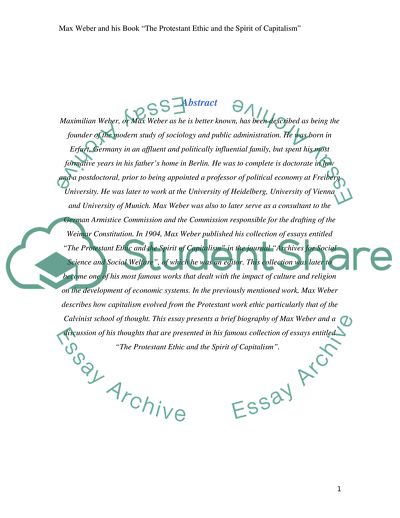Cite this document
(Analysis of the Protestant Ethic and the Spirit of Capitalism by Max Book Report/Review, n.d.)
Analysis of the Protestant Ethic and the Spirit of Capitalism by Max Book Report/Review. https://studentshare.org/sociology/1704912-sociological-theory-max-weber-and-his-book-the-protestant-ethic-and-the-spirit-of-capitalism
Analysis of the Protestant Ethic and the Spirit of Capitalism by Max Book Report/Review. https://studentshare.org/sociology/1704912-sociological-theory-max-weber-and-his-book-the-protestant-ethic-and-the-spirit-of-capitalism
(Analysis of the Protestant Ethic and the Spirit of Capitalism by Max Book Report/Review)
Analysis of the Protestant Ethic and the Spirit of Capitalism by Max Book Report/Review. https://studentshare.org/sociology/1704912-sociological-theory-max-weber-and-his-book-the-protestant-ethic-and-the-spirit-of-capitalism.
Analysis of the Protestant Ethic and the Spirit of Capitalism by Max Book Report/Review. https://studentshare.org/sociology/1704912-sociological-theory-max-weber-and-his-book-the-protestant-ethic-and-the-spirit-of-capitalism.
“Analysis of the Protestant Ethic and the Spirit of Capitalism by Max Book Report/Review”. https://studentshare.org/sociology/1704912-sociological-theory-max-weber-and-his-book-the-protestant-ethic-and-the-spirit-of-capitalism.


